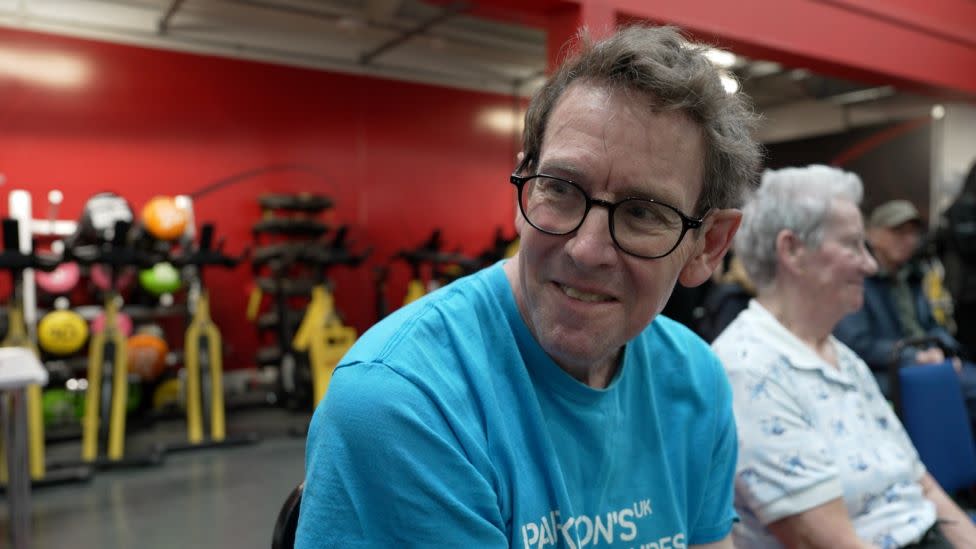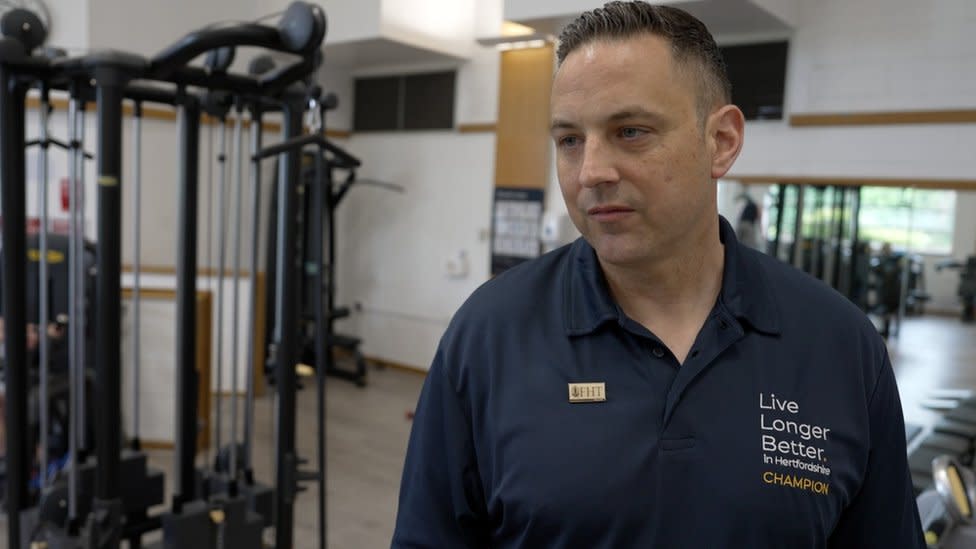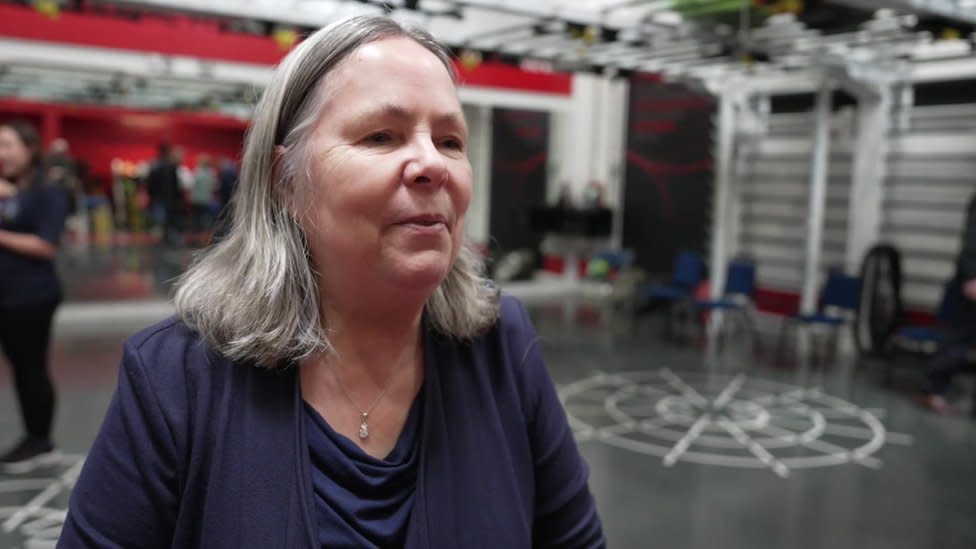'Exercise is medicine for Parkinson's', says Hertfordshire patients

Exercise is a form of medicine for people living with Parkinson's, said a woman who helped set up exercise classes for those with the condition.
Christina Walden, 68, from Harpenden, Hertfordshire, credits exercise with stopping the progression of symptoms.
A researcher from the University of Hertfordshire said studies show a link between exercise and slowing the progression of Parkinson's disease.
Researchers believe exercise leads to "better connections in the brain".
Ms Walden, who was diagnosed in 2016 and whose main symptom is weakness on the right side of her body, said: "Basically exercise is medicine.
"I'd like to think that [exercise] is the reason [symptoms haven't progressed] because I do lots of it."

Parkinson's disease can cause tremors, balance problems and slow movement.
These symptoms arise after substantial loss of the dopamine-producing cells in an area of the brain known as the substantia nigra.
Matthew Hignell, 62, was diagnosed aged 49 after he noticed a tremor in his right arm.
"I found generally my right arm didn't work the same as my left arm, brushing my teeth became difficult and just lots of little things," he said.
"Something these classes are quite good for is co-ordination - just pulling everything together like that.
"For Parkinson's, exercise is very important. I feel much better when I'm exercising than when I'm not. It really does just make a difference to me."

John Molyneux, a physical trainer who runs exercise classes for people living with Parkinson's in Hitchin, Hertfordshire, said it can help reduce a number of symptoms.
"Parkinson's is very varied and everyone you'll meet will have a unique set of symptoms, but those can change from day to day," he said.
"So exercise can push back Parkinson's, reduce symptoms and just improve people's lives.
"Exercise is like a magic pill and [it is] proven the right exercise can be just as beneficial as the medication."

Dr Lucy Annett from the University of Hertfordshire has researched the impact of exercise on those living with Parkinson's and said studies have shown a link between exercise and slowing the progression of the disease.
"Symptoms can start very slowly and gradually and come on over many years and we need something that slows that down," she said.
"Evidence is growing that exercise may be a good way of doing that."
It was not completely understood why, but one study in the Netherlands showed "better connections in the brain" following regular exercise, she said.
"The message is do whatever you can, do whatever you enjoy," she said.
Follow East of England news on Facebook, Instagram and X. Got a story? Email eastofenglandnews@bbc.co.uk or WhatsApp 0800 169 1830
